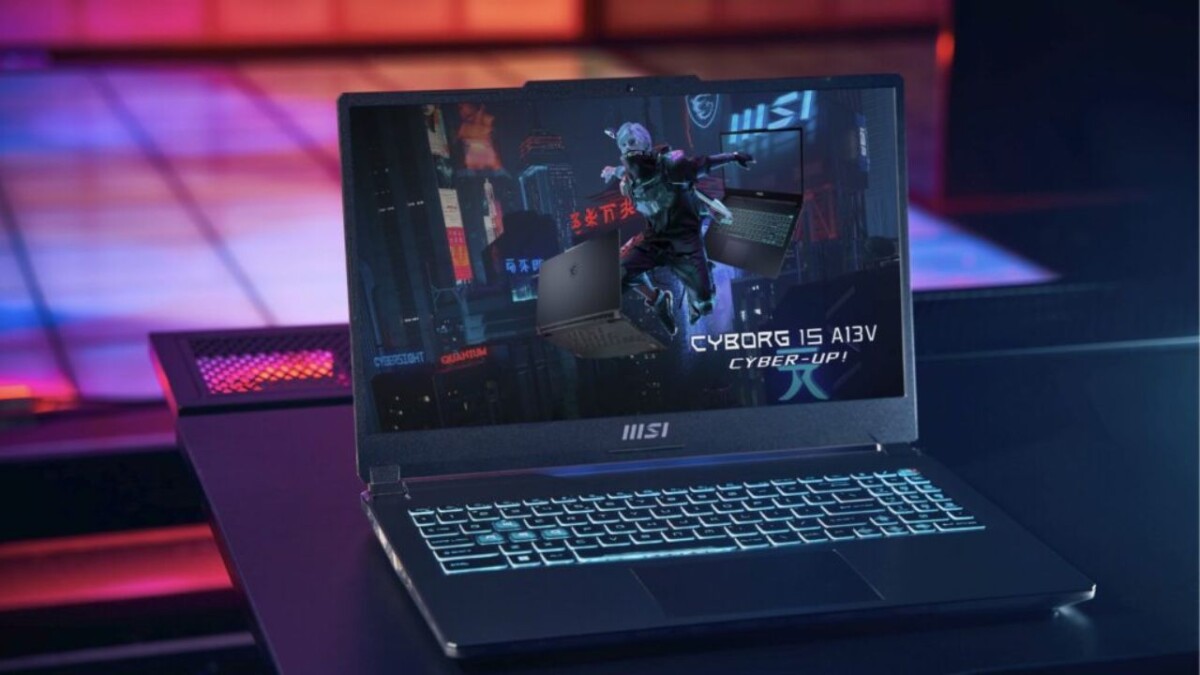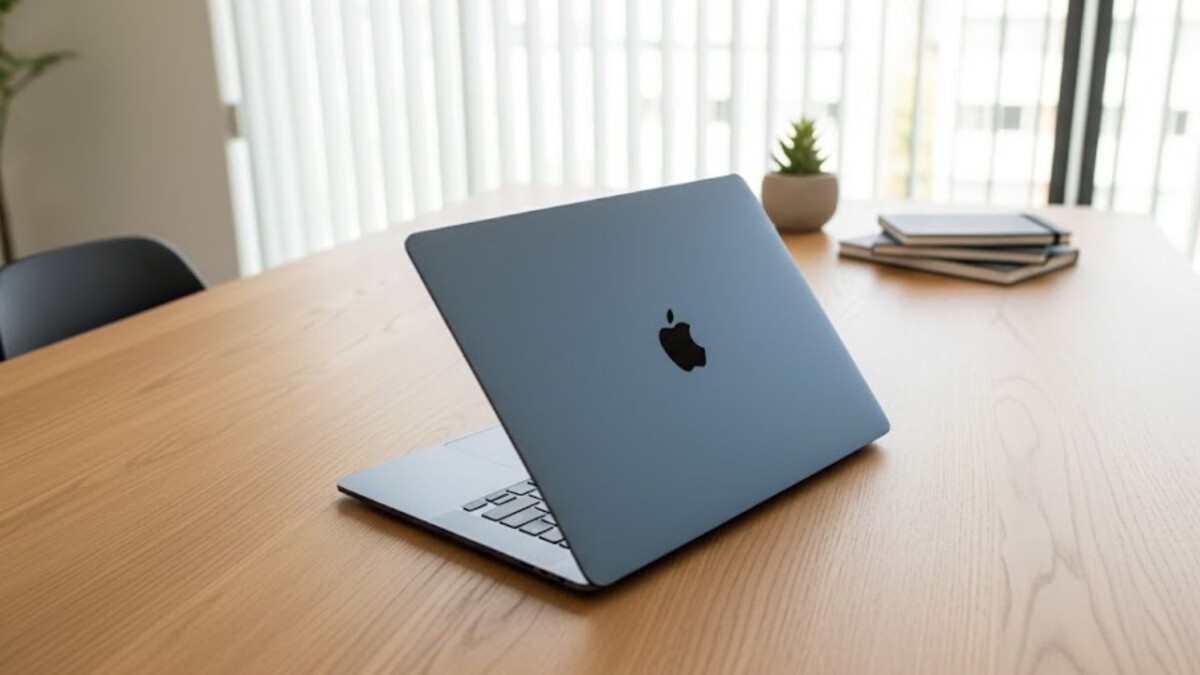The MSI Cyborg is one of the most talked-about laptops in the midrange market today, often recommended for architecture students and creative professionals who need serious performance without breaking the bank. While it’s primarily marketed as a gaming laptop, its hardware and design make it equally capable for demanding design software and rendering tasks.
Let’s break down what makes the MSI Cyborg a strong contender for both school and play.
Overview
The MSI Cyborg series, particularly the Cyborg 15 A12V and A13V models, balances power, portability, and price. It’s designed with a futuristic “cyberpunk” aesthetic—transparent keyboard sections, subtle RGB lighting, and a clean black chassis. Beyond its looks, it packs enough performance to handle modern 3D modeling, rendering, and gaming.
Specifications (Typical for the Cyborg 15 Series)
| Component | Details | Why It Matters for Architecture Students |
|---|---|---|
| Processor (CPU) | Intel Core i7-12650H or i7-13620H | Excellent multi-core performance for modeling, rendering, and multitasking. |
| Graphics (GPU) | NVIDIA GeForce RTX 4060 Laptop GPU (45W) | Handles 3D modeling, rendering, and real-time visualization with ease. |
| Memory (RAM) | 8 GB or 16 GB DDR5 (upgradable to 64 GB) | More RAM means smoother multitasking in programs like Revit, SketchUp, and AutoCAD. |
| Storage | 512 GB NVMe SSD (expandable) | Fast load times for projects, with room to upgrade. |
| Display | 15.6” Full HD (1920×1080), 144Hz IPS panel | Smooth visuals for gaming; decent for design, though color accuracy is average. |
| Battery | 53.5 Wh | Moderate battery life; best performance when plugged in. |
| Weight | Around 1.98 kg | Portable enough for classes and on-the-go use. |






Strengths: Why It’s Recommended for Architecture Students
1. Excellent Price-to-Performance Ratio
The Cyborg offers powerful hardware for its price range. The Intel H-series CPUs combined with an RTX 4060 GPU make it capable of handling heavy applications like AutoCAD, Revit, SketchUp, Lumion, and Enscape—programs that architecture students use daily.
2. Future-Proof Upgradability
Unlike many thin laptops, the Cyborg allows RAM and SSD upgrades. You can start with 8 GB and easily expand to 32 GB or even 64 GB later—ideal for students who plan to keep the same laptop throughout college.
3. Capable Gaming Performance
Yes—it’s a gaming laptop too. The RTX 4060 GPU and 144Hz display deliver smooth gameplay at 1080p on medium to high settings. Whether you’re into Valorant, GTA V, or Cyberpunk 2077, it performs reliably while keeping temperatures manageable.
4. Balanced Design and Portability
At under 2 kg, it’s lighter than most gaming laptops. You can carry it to campus, client meetings, or studios without much strain. The translucent design adds a cool touch, making it stand out without being too flashy.
Limitations: Things to Consider
1. Base RAM Is Often Too Low
Many units come with just 8 GB RAM, which is below ideal for architecture work. Upgrading to at least 16 GB (preferably 32 GB) significantly improves performance, especially when multitasking with heavy design tools.
2. Display Quality Is Average
While the 144Hz screen is great for gaming, its color accuracy and brightness aren’t ideal for professional photo editing or color-critical work. Using an external monitor for final renders or presentations is recommended.
3. Limited GPU Power
The RTX 4060 variant used in the Cyborg runs at a lower wattage (around 45W), which slightly limits its maximum performance compared to higher-end gaming laptops. It’s still powerful, but not on par with full-power 4060 or 4070 models.
4. Battery Life and Cooling
Expect around 4–5 hours of regular use, less during 3D rendering or gaming. The cooling system works well but can get noisy under heavy load—common among gaming laptops.
For Gaming: How Well Does It Perform?
The Cyborg 15 handles most modern games at Full HD smoothly. With its RTX 4060 GPU and 144Hz refresh rate, you can expect:
- High to ultra settings in eSports titles like Valorant, DOTA 2, and CS2.
- Medium to high settings in demanding games like Cyberpunk 2077, Hogwarts Legacy, or Starfield.
Its thermals are acceptable, though you’ll notice fan noise during long gaming sessions. For students who game casually after work, it’s a great dual-purpose laptop.
Verdict: Should You Buy the MSI Cyborg?
✅ Ideal For:
- Architecture students who need a balance of power, portability, and price
- Those who use AutoCAD, Revit, SketchUp, Lumion, Blender, or Enscape
- Gamers who want smooth performance at 1080p
- Students who plan to upgrade RAM or storage later on
⚠️ Think Twice If:
- You prioritize color-accurate displays for rendering or graphic design
- You need maximum GPU performance for 4K rendering or VR visualization
- You want ultra-quiet cooling and long battery life
Final Thoughts
The MSI Cyborg strikes an impressive balance between gaming power and academic practicality. It’s stylish, portable, and strong enough to handle professional design software and gaming alike. For architecture students, it’s one of the best options in its price bracket—especially if you’re willing to upgrade the RAM.
If you’re entering college or looking to replace an outdated laptop, the MSI Cyborg 15 offers great value and versatility for both work and play.
Disclaimer: Images used in this article are for illustrative purposes only. All photos belong to their respective owners. If you are the copyright holder of any image and wish to request removal or credit update, please contact us.















